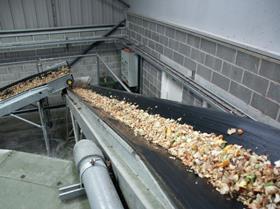
A groundbreaking pledge to reduce the resource intensity of the UK food and drink industry by a fifth over the next decade - saving as much as £20 billion - has been unveiled by WRAP.
The Courtauld Commitment 2025, which has been signed by all the leading UK food retailers, as well as branded manufacturers, foodservice companies, trade bodies and local authorities, is being billed as a world-leading cross-supply chain voluntary agreement to reduce the environmental impact of food and drink.
Signatories have agreed to achieving a 20 per cent reduction in food and drink waste arising in the UK; a 20 per cent reduction in the greenhouse gas intensity of food and drink consumed in this country; and a reduction in the impact associated with water use in the supply chain.
As well as extending the existing work of large retailers, the commitment aims to bring in the farming sector and local authorities, with participants working together with WRAP to identify new actions and opportunities to save resources. Best practice will be shared across the supply chain.
WRAP, which points out that companies will enjoy around £4bn of business savings themselves, will report on the progress and impact of the agreement across the entire food system, and estimates a £20bn saving to the UK economy.
The pledge will also help the UK play its role in achieving the objectives of climate change commitment COP 21, and put the UK on track to halve household and retail waste in line with UN Sustainable Development Goal 12.3, according to WRAP.
Dr Richard Swannell, director of sustainable food systems at WRAP, said: “The pressures of resource scarcity, population growth and our changing climate will have profound effects on our food supply in the coming years, and business efficiency. To safeguard UK food we need a step-change to increase sustainable food and drink production and consumption, conserve resources and combat climate change. Courtauld 2025 will do this.”
Resources minister Rory Stewart added: “Food waste, at any stage from the farm to the house, is something we should avoid. It wastes precious water and resources. So I am delighted that this great group of food and drink companies has come together with WRAP to reduce our food waste.
“Under the last framework we have already reduced food waste in the supply chain by 10 per cent. And this team-work and leadership should allow us to go much further.”



